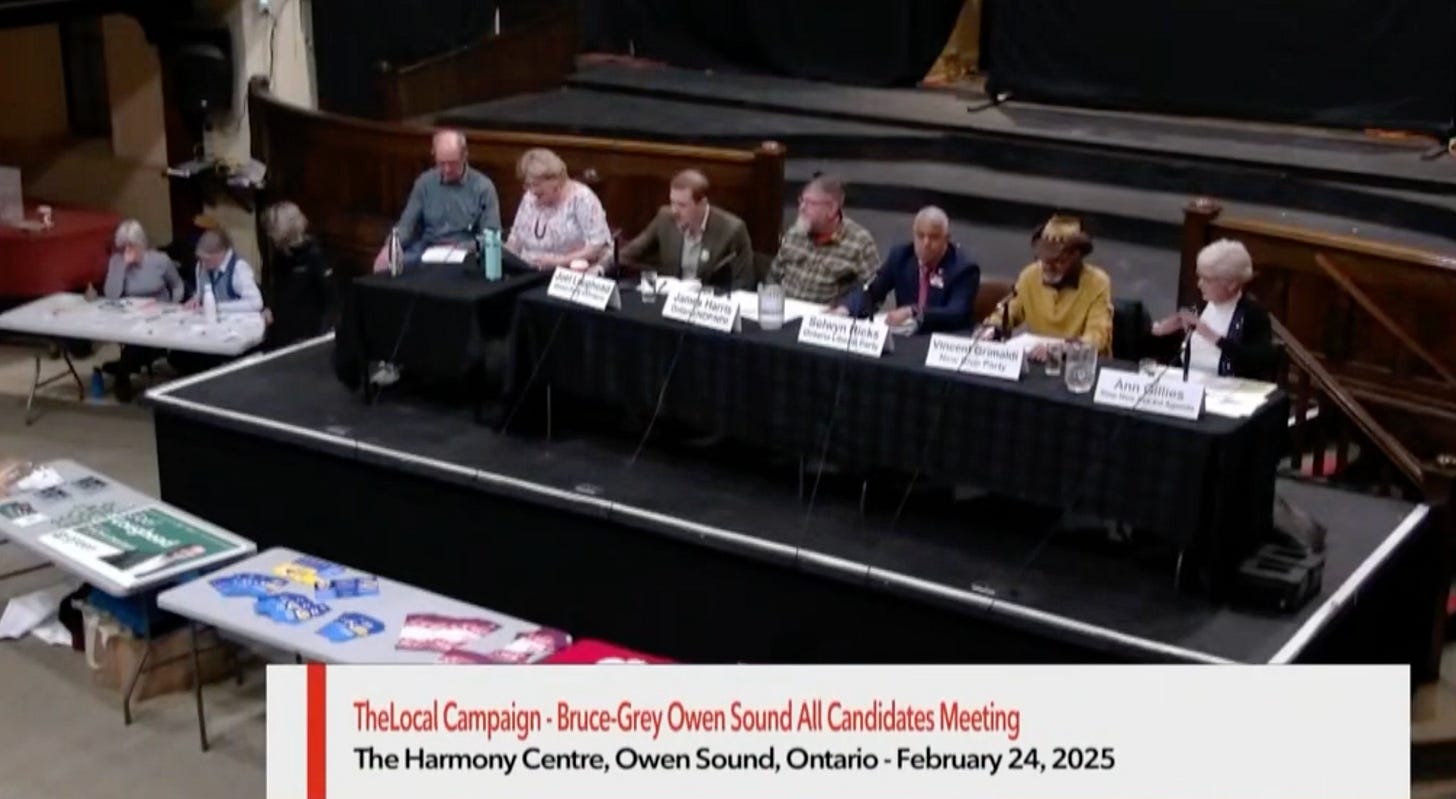Video: Community Hears from Five MPP Candidates at Final Debate in Owen Sound
BGOS MPP candidates Paul Vickers, PC, and Michael Butt, Libertarian, declined to participate in the healthcare and climate-focused debate on Monday evening.
The Grey Bruce Climate Action Network and the Grey Bruce Health Coalition held the final all candidates meeting of this provincial election cycle on Monday evening at the Harmony Centre. At issue: all things climate change, healthcare, and our region's future.
Five of the eight candidates for BGOS MPP attended, those being:
Ann Gillies – Stop the New Sex-…
Keep reading with a 7-day free trial
Subscribe to The Owen Sound Current to keep reading this post and get 7 days of free access to the full post archives.



